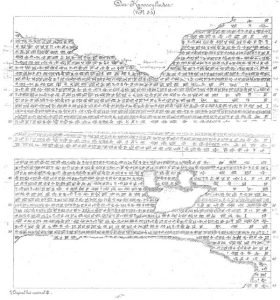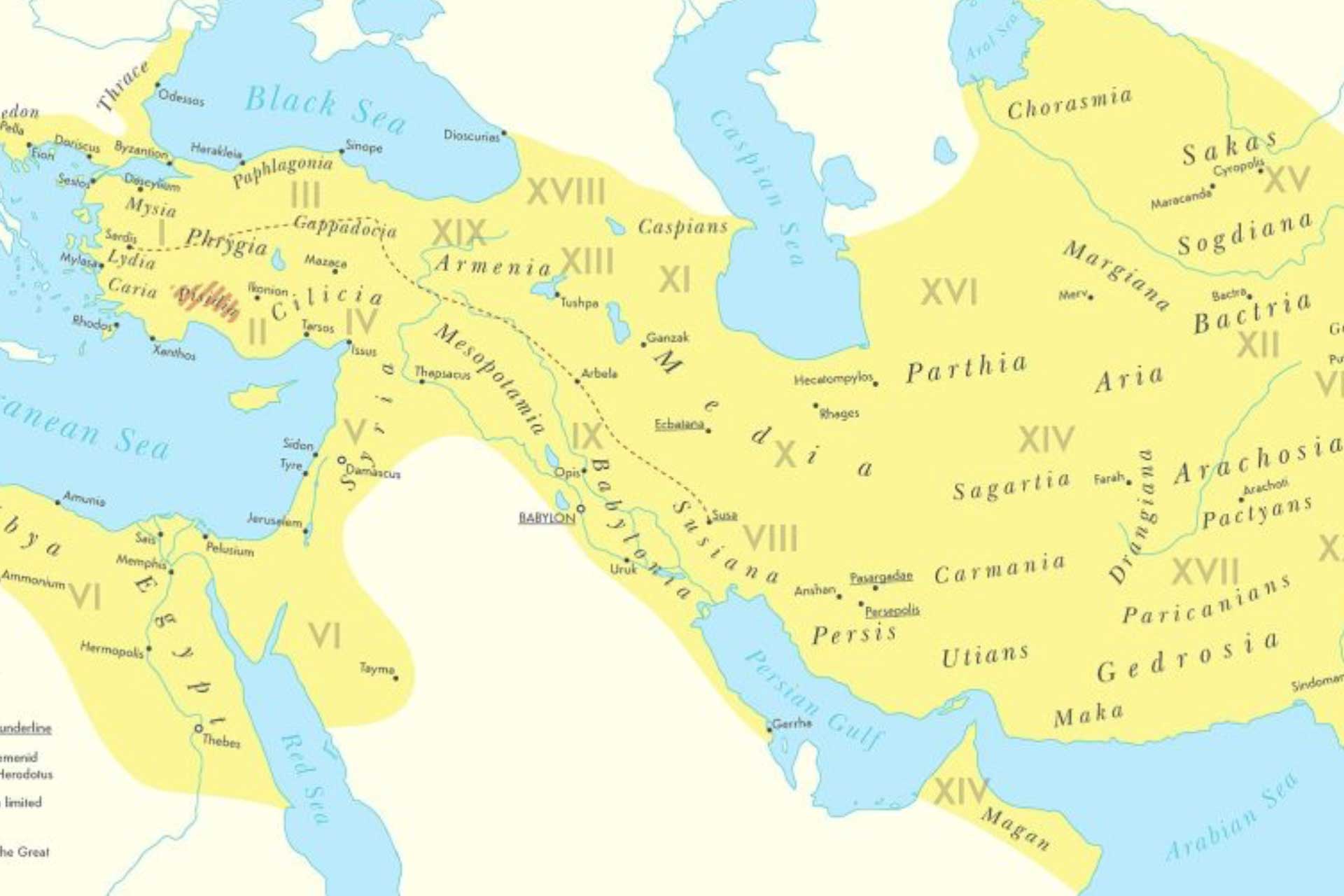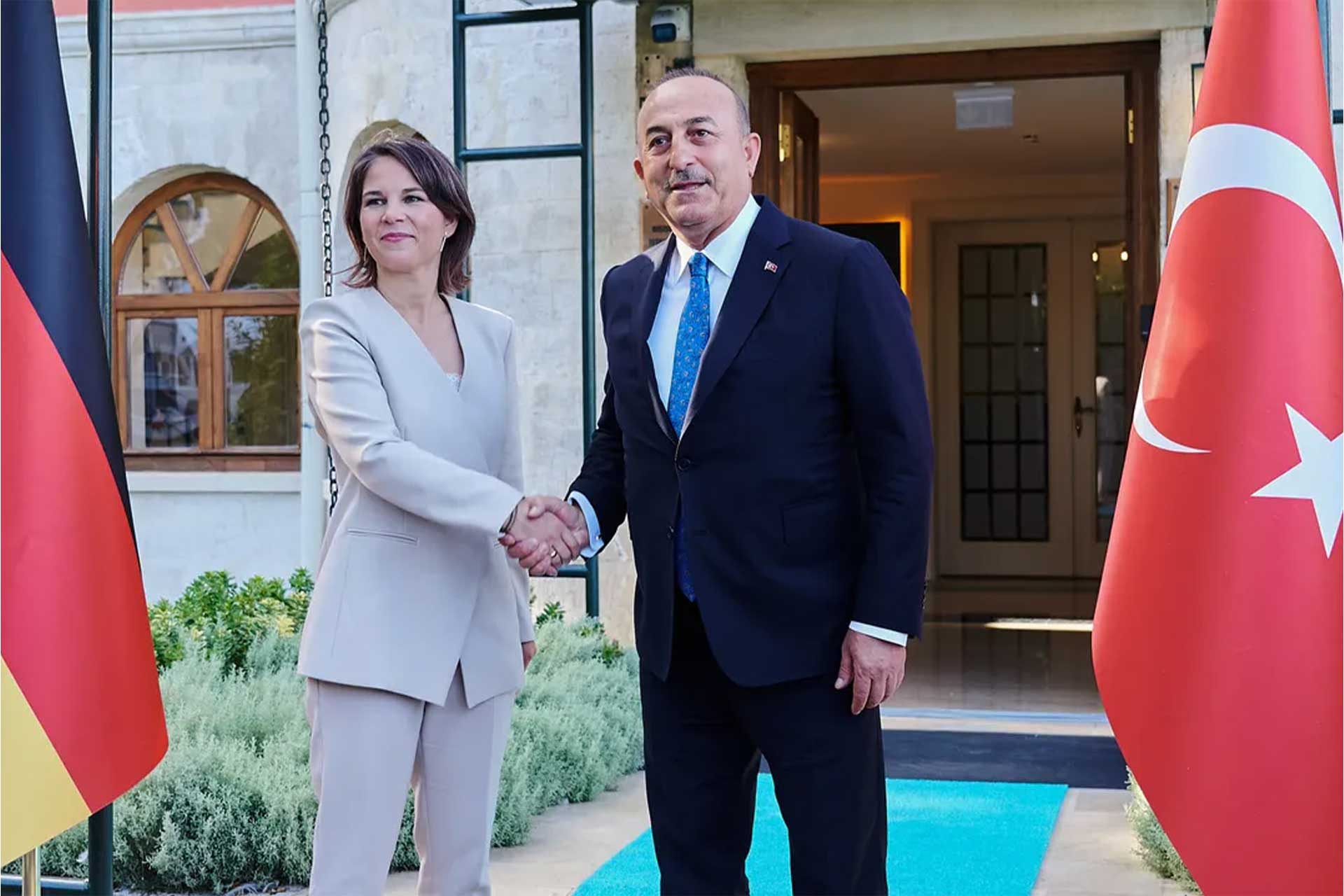Ancient Persian Diplomacy
Persians are a Persian (Old Persian) speaking tribe belonging to the Iranian branch of the Indo-European language and are claimed to have settled in present-day Iran around 1200 BC. The definitive sources about the Persians are found in Assyrian texts and they called themselves Aryans. This is where the name Iran comes from today. The Persian Kingdom was born from the Median Kingdom, which was also of Aryan origin. The first Persian king, Cyrus (Cyrus in Greek), was the grandson of the last Median king Astyages (585-550 BC) and the governor of Persis/Anshan (Fars province of present-day Iran). When he rebelled against his grandfather, the Median tribes and army sided with him.

King Cyrus of Persia
In a short period of time, the Persians took over the Medes’ legacy and built a great empire. The Medes, who were related to the Persians, continued to be the main component of this state and to participate in the administration. In fact, it is possible to see this state as a Medo-Persian Confederation. This is perhaps one of the reasons why Greek writers insistently called the Persians Medes. As a matter of fact, as the Roman geographer Strabo testifies, it is known that the Medes and Persians had the same language and culture. [1]
Taking advantage of the disorganization of authority in the Near East, in 539 B.C.E., Qabus put an end to the Babylonian state and dominated all Babylonian lands up to Palestine. It is seen that the Persians had the idea of establishing a world empire in this period. The fabric itself is inscribed: “Great King, (hishayadiya hishayadiyanam) King of Persia, King of Anshan, King of Media, King of Babylon, King of Sumer and Akkad, King of the four corners of the world”. Persian rock inscriptions were written in all the languages of the time (Persian, Babylonian, Elamite) in accordance with the idea of empire. Official archives, taxation and commercial correspondence were also written in Aramaic, the lingua franca of the Near East. [2]
The edict known as The Cyrus Cylinder, issued by Kurash in Babylon to grant freedom to slaves and exiles, is considered the “first declaration of human rights” in history. The generally accepted translation of the text is as follows:
”I declare that the customs and religions of the nations living in my empire will be respected and that I will not allow my rulers and their subordinates to humiliate or insult them as long as I live. From now on, as long as God Ahuramazda allows me to rule, I will not impose my power by force on any nation. Each of them is free to accept my rule or not, and if any of them reject it, I will never wage war against them”. [3] [4]

Cyrus Cylinder
Contrary to Herodotus, non-Greek sources say that Persian soft diplomacy had a positive cultural impact on other peoples. Unlike other civilizations, the Persians were sensitive to the cultures of the peoples they ruled, thus raising awareness of potential fractures in society. By creating a perfect balance between centralized and decentralized forms of government, the Persians maintained their sovereignty with a different administrative synthesis. While the Greeks practiced tolerance towards local cultures for reasons of tolerance, the Persians also practiced this diplomacy in order to protect their own race and maintain their purebloods. By not integrating foreigners, but only ruling them, the Persians spread over a vast geography in nearly two hundred years. [5]
One of the main reasons for Persian differences in diplomacy was the Zoroastrian religion. Zoroastrianism is fundamentally based on the belief that truth must endure. The first and oldest part of the Avesta, containing the gatas dedicated to Zoroastrianism, is written in Yasna:
I must protect the awakened soul with right thinking and behavior, for I know that Ahura Mazda will repay me for what I do. As long as I have the power and ability, I will teach everyone to seek truth and righteousness. [6] [6.1]
Ahunuvaiti Gatha, Yasna 28
Even if the world of lies achieves what it wants, it will surely be defeated in its wake. Then the righteous will be taken to the promised land – the land of Good Reason, Truth and Wise Power (God Ahura Mazda).[7]Ahunuvaiti Gatha, Yasna 30
According to Yasna 30, two jewels appeared in the realm of thought – good thought and bad thought. The people of truth chose the good thought. These two jewels then laid the foundation for existence and non-existence in the world. Accordingly, on the Day of Reckoning, those who chose good thinking would be given a good life, while the liars would be given the worst life (Yasna 30.4). [7.1]
In Zoroastrianism, Mithra, the divine being in charge of covenants, oaths and agreements, oversees the observance of contracts and sees everything. [8] It must have been because of this belief that the Persians were faithful to many of the peace treaties they signed. It is a fact that Persians, like other civilizations, had a warrior and tough image. However, compared to other civilizations, the Persian Civilization carried out diplomacy that was unprecedented in history, peaceful, and gave importance to human rights.
Tunjay Guliyev
Undergraduate student-Koç University
Sources
[1] History of Diplomacy I (Barış Özdal 2020; p.142)
[2] History of Ancient Persia (Josef Wiesehöfer) (Turkish Translate: Mehmet Ali Inci 2005; p.31)
[3] The Cyrus Cylinder – The King of Persia’s Proclamation from Ancient Babylon (Irving Finkel) (Published by I.B.Tauris & Co.Ltd 2013; p.3-7)
[4] https://www.livius.org/sources/content/cyrus-cylinder/cyrus-cylinder-translation/
[5] Cohen, R. 2001. “The Great Tradition: The Spread of Diplomacy in the Ancient World.” – Diplomacy and Statecraft 12.1: 23-28




Comments